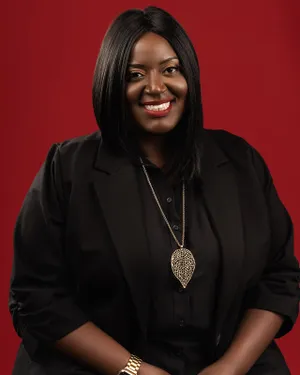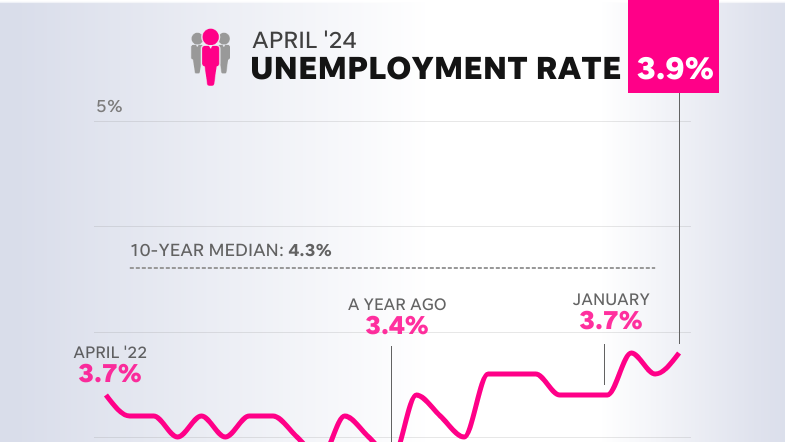Millennials, Gen Z are 'spiraling,' partying hard and blowing their savings. Why?
Jacob Forrest is a 24-year-old who lives in Miami and works for a health insurance agency. He likes going out with friends in downtown Fort Lauderdale. He should be saving a lot of money ... but like many young people, that's not where his head's at. He's "spiraling."
"I just feel myself just kind of letting the days go by," Forrest says. "And I'm sure a lot of my friends can relate to this feeling, because I know so many people who don't have much saved, are bouncing from job to job, and a lot of us are still going out and partying, going downtown and stuff and just kind of acting like everything's all right. And I just know that's not the case."
Look anywhere on social media – or talk to anyone in real life – and you'll hear these same frustrations. Jamal Jordan, an author and Washington Post editor, put it plainly on Twitter: "Am I the only one who feels like everyone is spiraling? All of my friends worked hard their whole lives just for layoffs be a normal part of their professional lives, no one can afford to save money, everyone’s partying a lot seemingly embracing an ethos of chaos."
The data bears it out too. Unemployment is on the rise again. Inflation is still top of mind for Americans, even as it's slowed down. Most acutely, though, it's affecting Gen Z, whose cohort includes recent college graduates and young adults starting their careers and trying to pay their bills while still finding time to have fun. Millennials, too, are still feeling the burn.
So, how do you cope when everything is a mess? Mental health experts recommend focusing on what you can control instead of what you can't, and going from there.
"We are living through some unsettling times and it can feel like everything is out of control so what's the point," says Laura Petiford, a licensed marriage and family therapist. "Remembering that exercising control over our thoughts can be incredibly powerful in making challenging times more manageable."

'Really refreshing that I wasn't alone'
As it pertains to mental health, spiraling means an inability to control negative thoughts. "And what we think can impact how we feel as well as behavior, sometimes starting a cycle that's not healthy," Petiford says.
Samantha DeGennaro, 36, of Connecticut, understands the feeling. DeGennaro graduated from Harvard University in 2009 and faced a turbulent job market and opted to work in startups. She recently had her 15-year college reunion and was laid off a few weeks before that. "You typically don't want to go into a college reunion without a job," she says. "I was like, should I even go?"

It turned out everyone was candid about their own struggles. "It was actually really refreshing that I wasn't alone," she says. "There is sort of this false sense that everybody else is doing better than you."
That's where self-awareness becomes helpful. "Finding ways to manage thoughts is critical to stop a pattern of spiraling," Petiford says. "Recognizing that your thoughts are spiraling is the first step."
'I feel like we're still adjusting'
People are spiraling for all kinds of reasons, but the pandemic still casts a long shadow. COVID stunted these generations' educations, early and mid-careers and social lives. Resuming life hasn't been as simple as flipping a switch. "We're still getting back into it, like it's still awkward sometimes," says Alex Piscatelli, social strategist and creator of the Grief and Media Project. "I feel like we're still adjusting."
"I know what I have to do, and I know that I need to get disciplined," Forrest adds. "Stop smoking as much, stop spending as much time on my phone, start eating better, start working out."
But just because you know you need to do something doesn't mean you will. As Forrest and his friends see it: "Even though we know we should be making changes in order to improve our situation, whatever that situation may be, it's sort of like a 'eh, whatever. We'll just roll with the punches.'"
'I try to tell myself that things will work out'
It's not as easy for some to just "roll with the punches," though. Nadia Worsley, 35, was laid off twice in the last three years. It took her nine months to land a job.
"My unemployment ran out, bills kept piling up, therefore, I didn't have extra funds to contribute to my retirement like I had previously been doing," the Los Angeles publicity strategist says. "I felt worthless and like I wasn't good enough."

Piscatelli is trying to alleviate this mindset by leaning into distracting but therapeutic monoculture trends like Barbie and "brat summer," and spending more time with friends in weekly coffee meet-ups.
"I ebb and flow between being hopeful and being in despair," she says, "and I try not to stay in despair too often. I try to tell myself that things will work out."
This is in line with what Cecille Ahrens, a licensed clinical social worker, recommends: "Having a balanced perspective, a healthy support system and a strong sense of self-efficacy, are what can help us successfully navigate the uncertainties of life."
Also, don't push past all the negative feelings, either. You can lean into them, too. "Accepting all of your emotions and learning about them helps to better cope and process them," says Chase Cassine, licensed clinical social worker.

'It's OK to feel how you're feeling'
If you're really feeling stuck, consider these tips from Miranda Nadeau, a licensed psychologist.
- Break it down. "When everything feels like it's spinning out, it can help to break things down into smaller, more manageable parts."
- Breathe, breathe, breathe. "Try inhaling deeply through your nose for a slow count of four, hold it for four and exhaling through your mouth for four counts. Repeat this a few times and notice how you feel, if different or the same."
- Ground yourself. "Often, spiraling thoughts are fearful and future-oriented. Grounding techniques, like focusing on your immediate surroundings or engaging your senses – what you can see, hear, touch, etc. – can help bring you back to the present."
- Splash yourself with cold water. "This tried-and-true coping skill triggers a calming response in your body that will also affect how you feel emotionally. Alternatively, try a quick cold shower to help reset your nervous system."
- Take care of you. "Remember that it’s OK to feel how you’re feeling."
Disclaimer: The copyright of this article belongs to the original author. Reposting this article is solely for the purpose of information dissemination and does not constitute any investment advice. If there is any infringement, please contact us immediately. We will make corrections or deletions as necessary. Thank you.







